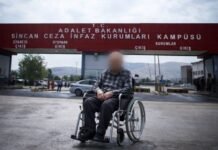One in three schoolchildren in Turkey goes to class lacking proper nutrition, a stark sign of worsening child poverty that advocacy groups say has reached crisis levels, the Bianet news website reported.
According to a new report by the Ankara Medical Chamber, a professional association of doctors that studies public health issues, 43.6 percent of children in Turkey now live in poverty. Over the past seven years, child poverty has risen by 40 percent, the chamber said.
The report found that roughly 25 million people in Turkey, nearly one-third of the population, are at risk of poverty. Within that figure, 171,000 children are growing up in families unable to provide even their most basic necessities.
The Sulukule Volunteers Association, an Istanbul-based advocacy group, has launched a campaign called “Let’s Secure the Right to Nutrition in Schools!” urging the government to guarantee free and healthy meals for every student. The group argues that children’s ability to learn and develop is tied directly to whether they eat adequately every day.
The campaign calls for one free, balanced daily meal for all children, menus designed around age and food safety standards. Advocates say meals must be funded through the state budget and delivered without stigma or discrimination.
Critics argue that the roots of the problem stretch back to the economic policies of President Recep Tayyip Erdoğan’s ruling Justice and Development Party (AKP). While government spending on poverty relief has risen sharply in recent years, soaring inflation has eroded its value. Many families now rely on social aid that fails to cover basic food expenses.
At the same time, a plan to provide free school meals in the 2020–21 academic year was announced by the health and education ministries to combat child hunger and stunted growth, often caused by chronic malnutrition, but the program was never implemented.
Advocacy groups also fault AKP education policies for diverting resources toward private schools and religious instruction, leaving public schools — where most poor children are enrolled — underfunded. The number of private schools has expanded nearly tenfold since the party came to power in 2002, while state budgets for public education have lagged.
The result, children’s rights groups say, is a generation growing up hungry and often forced into labor. UNICEF ranks Turkey near the bottom of wealthy nations in child poverty, with families increasingly relying on their children to contribute to household incomes.
For some, survival takes priority over education. In Istanbul, children as young as 11 collect recyclables to help feed their families, often missing class in the process. Advocates warn that without immediate investment in school nutrition programs, hunger will continue to drive students out of classrooms and into the workforce.
“Children’s most fundamental right is the right to grow, learn and thrive,” the Sulukule Volunteers Association said in its statement. “That right cannot be secured without food.”















